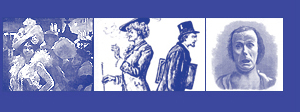Unconscious - The Natural Unconscious: Species, Crowds and Instincts
Author: Arthur Schopenhauer
Title: The World as Will and Idea (1818/1844)
Keywords:
Introduction
Introduction: The extreme popularity, and notoriety, of Schopenhauer’s main philosophical work in the latter half of the nineteenth-century, made it a prime source for European dissemination of Schopenhauer’s particular brand of pessimism, and his image of human individuals, for all their beliefs and intentions, unwittingly caught in the throes of a larger and inhuman context – the will of nature. This basic premise was already sketched out in 1818, though it attracted little notice at that time. In 1844, Schopenhauer republished his work with an additional volume backing up his metaphysical premises with empirical and anecdotal material, much of it drawn from his reading of contemporary natural science. It is from this later volume that the three extracts here come. The first, from a chapter called ‘On Instinct and Mechanical Tendency’ compares the instinctual actions of insects to those of human somnambulists. Humans who, under the influence of mesmeric trances, find themselves forced to perform certain actions, often without conscious knowledge, are compared in turn with spiders and ants. The second extract contains a powerful image of humans compelled to serve ‘a blind urge’ and poses questions about the nature of the motive that could drive individuals to such pointless labour. The third extract, from a chapter on ‘The Metaphysics of Sexual Love’, puts forward the view, later echoed at points by Freud, that the sexual impulse, next to the love of life, is the strongest and most active of all motives – ‘it does not hesitate to intrude with its trash’ in all the contexts of human behaviour.
Please select below to view scanned pages from 'The World as Will and Idea:
Back to Unconscious documents | Introduction | 1 | 2 | 3 | 4 | 5 |

